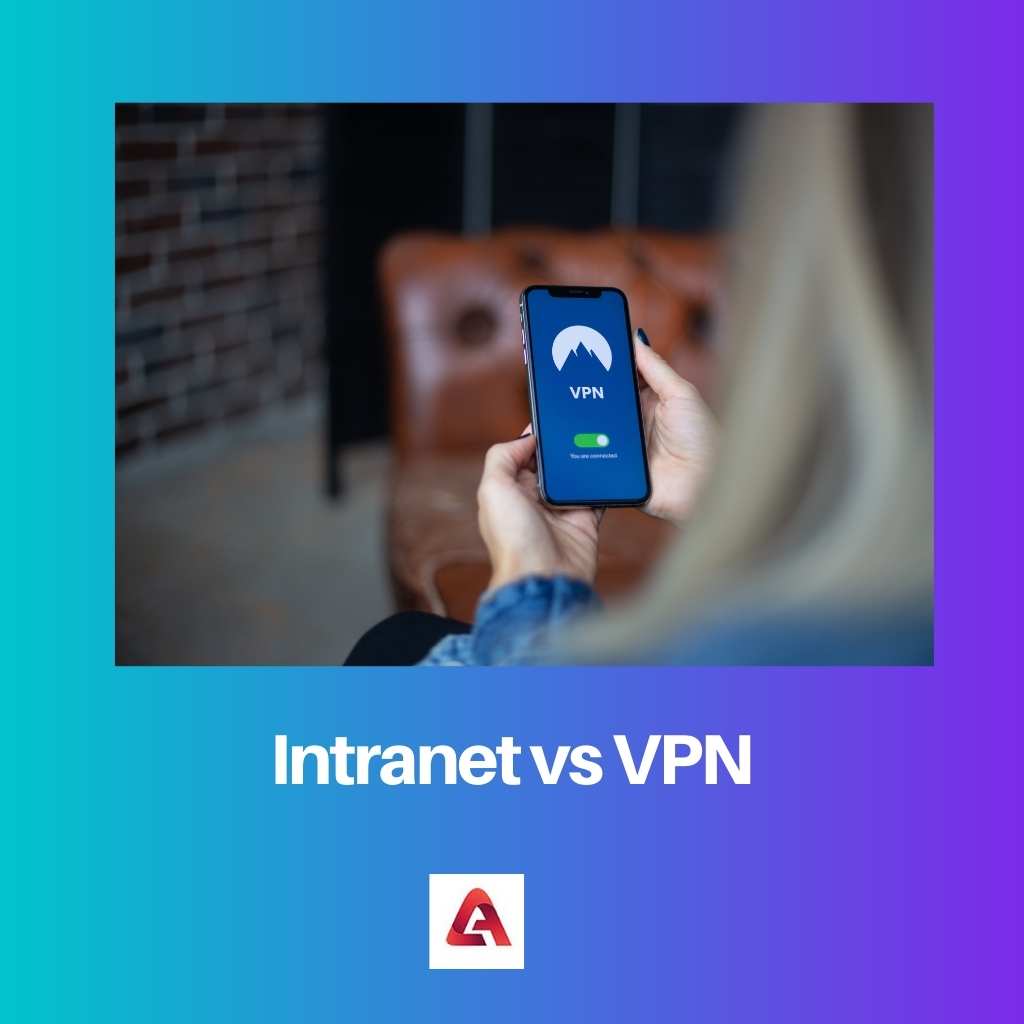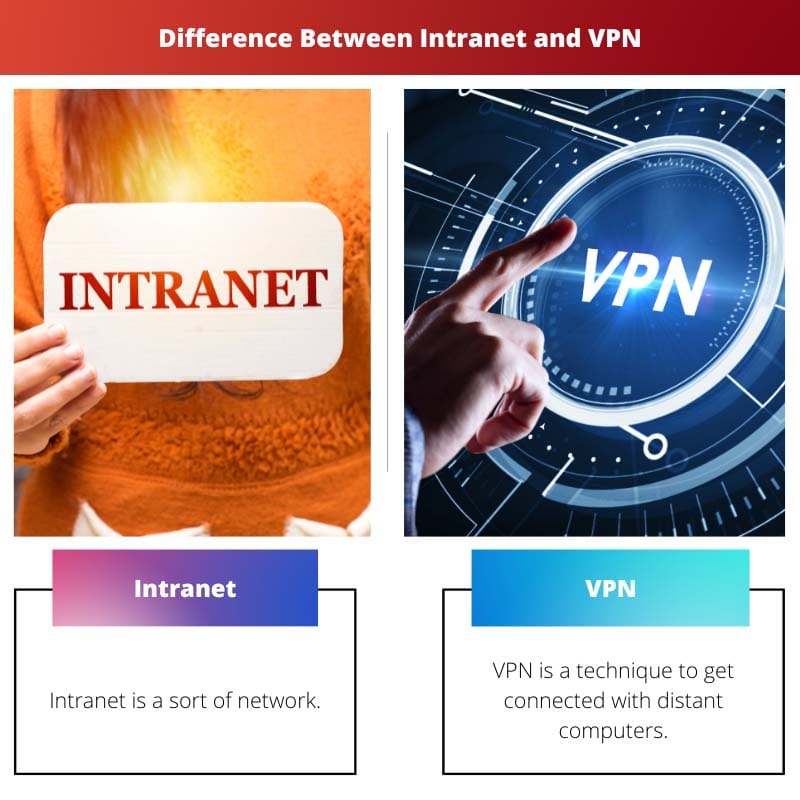The internet is a public network; therefore, it is open for all, and hence it is also a place for several types of malware software. The Intranet and VPN are solutions to that.
They both offer a safe place, but their objectives are not the same, and they also have different features to help out users.
Key Takeaways
- An intranet is a private network organization that shares employee information and resources. At the same time, a VPN (Virtual Private Network) is a technology that creates a secure connection over a public network for remote access or data protection.
- Intranets are limited to a specific organization and are not accessible to the public, whereas VPNs can connect users from various locations to a remote network.
- VPNs use encryption and authentication to secure data transmission, while intranets rely on the organization’s internal security measures and may not necessarily use encryption.
Intranet vs VPN
An intranet is a private network that is accessible only to authorized users within an organization. It is used to share information and collaborate. VPN is a private network that extends across a public network like the internet. It allows users to safely access a private network.

An Intranet is a private network of a company. It is distinct from the internet as that is a public domain. When organisations opt for Intranet, they get a private online space to communicate and collaborate with work.
It is a lot safer than public networks, and the information belonging to the organisation stays private.
A Virtual Private Network is a more secure network than the internet, a larger public network. If you use VPN, your identity and location will be kept secret and will not get disclosed.
If an individual wants to experience a safer browsing effect, then VPN will be a great choice.
Comparison Table
| Parameters of Comparison | Intranet | VPN |
|---|---|---|
| Definition | Intranet is a sort of network. | VPN is a technique to get connected with distant computers. |
| Accessing public network | For intranet, it is not necessary to go through a public network. | A VPN must go through a public network. |
| Identity | It does not hide your identity. | It hides your identity in the public network. |
| Users | A whole organization can avail to this. | This is designed to fulfil the needs of one person. |
| Remote connection | It can not access devices remotely. | It is capable of accessing computers remotely. |
What is Intranet?
To describe an Intranet, we can say it is a sort of computer network. It gets used in order to share information. Communication also gets easier when you use the Intranet.
It belongs to an organisation, and the outsiders can not have any access to it. Intranet includes collaboration tools and operational systems as well.
The easiest way to define an Intranet is by saying it is the opposite of public networks, namely the internet. The Internet is a public domain, while the Intranet is private.
Apart from this, the technology and protocol used in the two are the same.
The technologies of the Intranet are drawn upon the methods of LAN technologies. It comes with the access point of internal as well as external resources.
In several modern Intranet, you can notice search engines, mobile apps and even user profiles. The whole system has been very organised over the years.
In an organisation, the Intranet will distribute information based on the need. Therefore someone who is not supposed to know about a particular factor will remain unaware.
Inside the organisation, everyone will have access to the database, and no communication gap will take place.
What is VPN?
As mentioned before, the internet is a public network and being public has several elements that cause vulnerability.
To have a remedy to this, VPN or Virtual Private Network was built to stay safe in the vast sea of the internet, filled with perils. It is a private network inside the larger public network, namely the internet.
By using VPN, you will be allowed to access a certain network. For example, let’s say your organization retains a local network. Now, if a device is connected to that network, then you can access it with the help of a VPN.
VPN can also hide your real identity. It can work as a veil and does not disclose your real identity when you browse the internet.
It can create the illusion of you resigning to some other place rather than your real location, and as a result, your real location also gets hidden in the process.
This happens because your IP address gets changed. So it is very secure and also helps to protect your identity.
However, when connected to a LAN and using a VPN, you will be able to access only the files that are already shared on the network. For remote access, the resources must be set up beforehand.

Main Differences Between Intranet and VPN
- An intranet is a network. To be precise, it is a private network, but VPN, on the other hand, is a technique that will help you to access a distant computer remotely.
- On one side, we can notice that for intranet, it is not an essential part to move through the public network. But in the case of VPN, it is a must.
- Intranet can not access a remote device, and that is not also its usage, but VPN has the purpose of accessing a distantly located device.
- Intranet being an organisation’s network, does not hide the identity of the user, but VPN, on the contrary, can keep the user’s identity and location secured.
- Intranet is meant to be used by the whole organization, but VPN is adjusted in a way that is meant to be employed by one single person.




